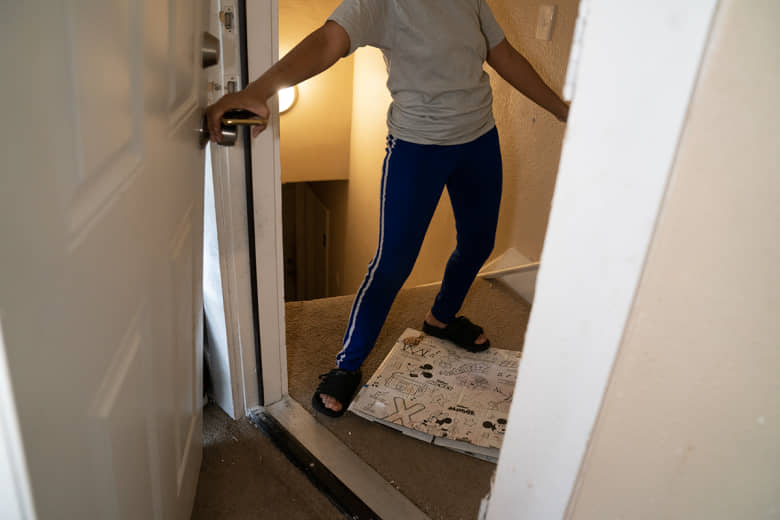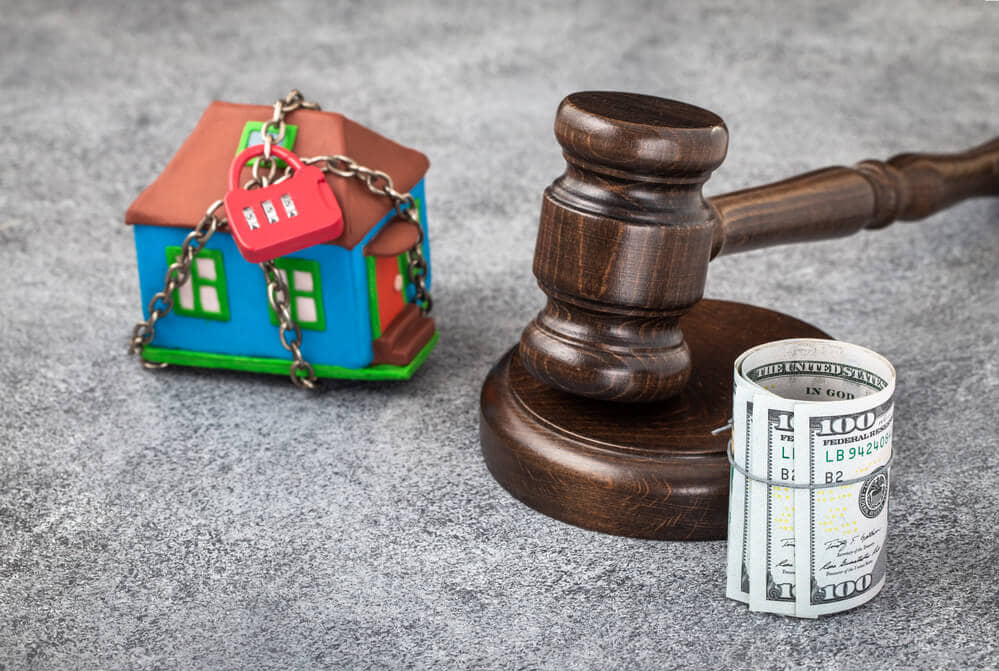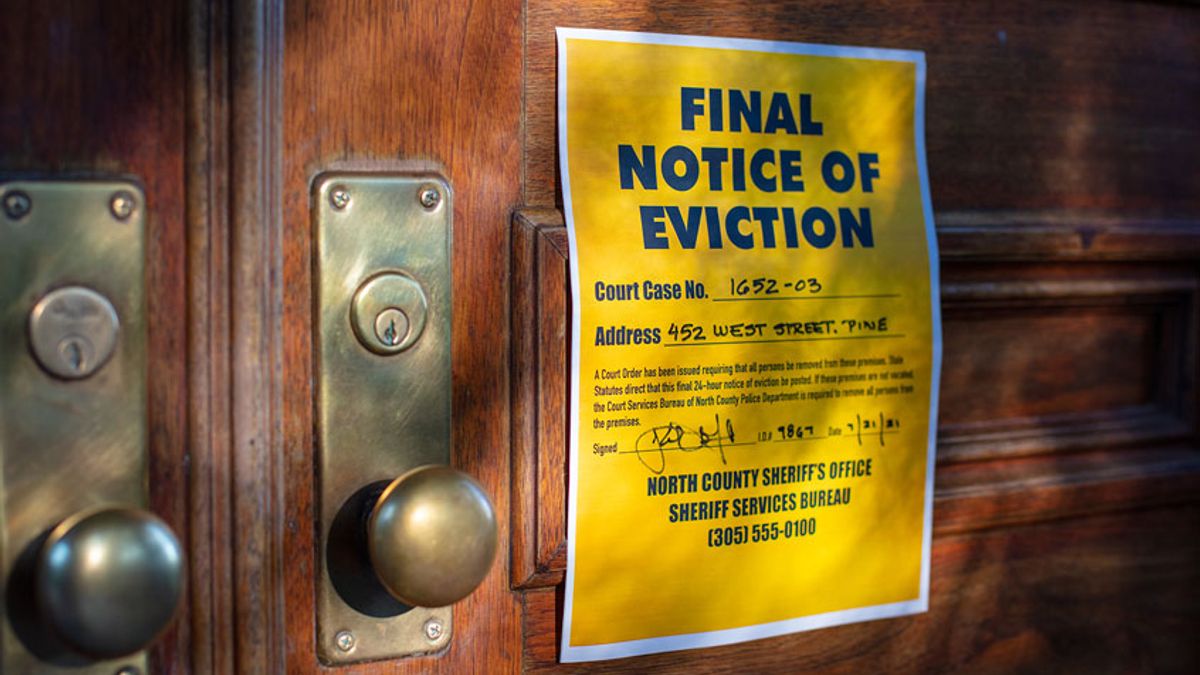 Source: https://www.pexels.com/photo/a-police-arresting-a-man-7715193/
Source: https://www.pexels.com/photo/a-police-arresting-a-man-7715193/
Squatting is a common issue that landlords face. If you are a landlord yourself, you may be wondering, "Can police remove squatters from my property?"
In certain situations, police can help landlords remove squatters from their properties. However, it is important to note that police officers cannot legally force people out of a property without an eviction notice or court order in hand. This means that if you have identified a squatter and want them removed from your property, it is best to take legal action first and then seek assistance from law enforcement if necessary.
In this article, we will discuss everything that you need to know about removing squatters from your property, from the different types of squatting to alternatives to police involvement. So, let us get started!
Understanding Squatting
Squatting refers to the act of occupying and living in a property without legal ownership, permission, or a contractual agreement with the property owner. It typically involves individuals or groups taking over abandoned or vacant properties, often with the intention of establishing a place to live.
Who Are Generally Considered Squatters?
Generally speaking, a person is considered a squatter if they occupy a certain property without the landlord's permission. Also, a tenant who stopped paying rent and refuses to leave your property is also considered a squatter.
If you have such an individual on your property, you must first understand the squatter eviction rights in your area and decide whether or not to take legal action.
Different Forms of Squatting
Squatting is not only limited to occupying abandoned or vacant properties. Other forms of squatting include the following.
Adverse Possession
Squatters may claim legal ownership of a property through adverse possession. Also known as "squatter rights", this occurs when they openly occupy your property for a specified period of time, usually several years, without you taking legal action to reclaim it.
This case might be more difficult to deal with, so before you decide to have police intervention for squatting, you should consult with a lawyer first. Remember, many states impose squatter rights, and you cannot simply remove them from your property without legal authorization.
Residential Squatting
This is the most common type of squatting that involves individuals or families occupying residential properties, such as houses or apartments, without the owner's consent. It is often driven by the lack of affordable housing options or the desire to challenge the perceived injustice of property ownership.
This also occurs often in holiday homes, especially those which are not occupied for long periods throughout the year. It is easier to have the police remove squatters in this case, as long as you can prove the squatter has no legal tenancy or ownership over your property.
Illegal Trespassing
This is a situation where a squatter enters your property without permission or lawful excuse. This type of squatting presents an even more complex situation. In any case, it is important that you understand the squatting laws and regulations before seeking police assistance for illegal trespassing.
Reasons Why People Engage in Squatting
Several factors contribute to why people engage in squatting. For one, it can be a consequence of homelessness or a lack of affordable housing options. Some individuals may resort to squatting as a means to secure shelter and meet their basic needs.
Squatting can also be seen as a form of protest against socioeconomic inequality. Activists and advocates argue that everyone has a right to housing, regardless of their financial status, and squatting is a way to challenge the unequal distribution of resources.
Moreover, squatters often target properties that appear abandoned or neglected. They may argue that these properties are not utilized and could be better used by providing shelter or community services.
Legal Implications of Squatting
The legal implications of squatting vary depending on the jurisdiction and the specific circumstances. In most states, squatting is illegal and can result in criminal charges or civil lawsuits. Landlords and property owners typically have the right to evict squatters and reclaim their property through legal means.
However, the legality of the squatter eviction process and the rights of settlers themselves can be complex. Some jurisdictions have specific laws and regulations that govern the process, while others may require property owners to go through a lengthy legal process to remove them. Adverse possession laws can also complicate the legal landscape by granting squatters ownership rights under certain conditions.
It is essential for you, as the landlord or property owner, to understand the legal framework surrounding squatting in your state and seek proper legal advice when dealing with squatters. Additionally, policymakers and lawmakers grapple with finding a balance between protecting property rights and addressing the underlying social issues that contribute to this practice.
Damage and Risks That Squatters Can Cause
If not dealt with quickly, squatters can cause a number of problems for landlords and/or property owners.
Loss of Income
Squatters can significantly reduce a landlord's income. Not only they would refuse to pay rent, but potential quality tenants may be deterred from moving in due to the presence of squatters or the damage they may have caused to the property.
Property Damage and Loss of Value
Squatters can cause a range of damage to your property, from minor repairs to extensive structural work. They might also leave behind hazardous materials, such as trash or even illegal substances, which can be costly and time-consuming to clean up.
Security Risks
Squatters may pose a security risk, as they could grant access to your property to other people without your permission. They might also be involved in criminal activities and attract an unwanted element to your premises.
Dealing with Squatters Legally: Understanding the Process
So, can police remove squatters? Of course, yes! Considering the damage and risk that squatting could bring to your property, it is important to resolve the problem as soon as possible.
But again, when it comes to enforcing property rights, the role of the police varies depending on certain circumstances. Here are a few key points to keep in mind.
Protection of Property
One of the primary roles of the police is to protect individuals and their property. This includes responding to reports of trespassing, property damage, and other offenses related to property rights.
Eviction of Squatters
When dealing with squatters legally, the police may be involved in the eviction process. They may assist in serving eviction notices, overseeing the removal of squatters, or ensuring that the eviction is carried out in accordance with the law.
Investigation of Property-Related Crimes
The police are responsible for investigating property-related crimes, such as theft, burglary, vandalism, and illegal occupation. They gather evidence, interview witnesses, and work towards bringing the perpetrators to justice.
Mediation and Conflict Resolution
In situations where disputes arise between property owners and occupants, the police will play a role in mediating conflicts and finding resolutions that uphold property rights while considering the legal rights of all parties involved.
Take note that the duties and responsibilities of law enforcement officers in police removal of squatters can vary considerably among different jurisdictions and agencies. Additionally, the involvement of the police in enforcing property rights may depend on factors, such as the severity of the offense, the availability of resources, and the local laws and regulations.
Proper Steps to Follow When Evicting a Squatter
 Source: https://unsplash.com/photos/idy16o-UasE
Source: https://unsplash.com/photos/idy16o-UasE
Here are the steps to follow when evicting someone who is squatting on your property.
1. File a Police Report
The first step is to contact the police and make a complaint about the illegal occupation of your property. This will help document the situation and provide evidence for any legal proceedings.
2. Have an Eviction Notice Served
You will need to serve an eviction notice to the squatter and make sure that they are aware of their rights and obligations. In some cases, the police may assist with this.
3. Seek Legal Assistance
If the squatter declines to leave or if there is a dispute, you may need to file a complaint with your local court and seek legal advice.
4. Final Eviction
If all other efforts fail, the police may be called in to enforce the court order and remove the squatters.
When the eviction is done, it is important to secure the property and make any necessary repairs or improvements. Also, you should find ways or implement tenancy policies that help with preventing squatters on property in the future.
Alternatives to Police Involvement
Property owners facing squatting issues also have alternatives to involving the police. You can pursue civil remedies through legal channels to resolve the situation. Some of these options include the following.
Trespassing Lawsuits
As the property owner, you have the right to file a lawsuit against squatters for trespassing on your property without permission. This legal action seeks to obtain a court order for the removal of the squatters and may also claim damages for any harm caused.
Injunctive Relief
You can also seek injunctive relief from the court, which is an order that prohibits squatters from remaining on your property. This can be a valuable tool in preventing further occupancy and protecting property rights.
Quiet Title Actions
If the squatters attempt to claim adverse possession rights, you can initiate quiet title actions to establish your ownership legally. These actions aim to remove any clouds on the title and affirm the property owner's rights.
Mediation and Negotiation Between You and the Squatters
In some cases, mediation and negotiation can be an effective alternative to police involvement. You can consider engaging in dialogue with squatters to reach mutually agreeable solutions. Mediation allows both parties to discuss their concerns, explore potential resolutions, and work toward a peaceful resolution. Mediators, who are impartial third parties, can help facilitate this process.
Negotiations could involve offering temporary housing assistance, referring squatters to local social services, or reaching agreements for the orderly and peaceful vacating of the property. These approaches prioritize communication, understanding, and finding ways to address the underlying issues that led to the squatting situation.
Collaborative Efforts with Local Authorities and Organizations
You can collaborate with local authorities, community organizations, and support services to address squatting issues. These collaborations can provide resources, support, and assistance in handling the situation effectively. Local authorities may have established programs or policies to address homelessness and housing affordability, which can be leveraged in finding appropriate solutions.
Engaging with organizations that specialize in housing advocacy, social services, or legal aid can provide property owners with valuable guidance and support. These organizations can offer advice on navigating the legal system, accessing resources, and connecting with relevant community services.
By exploring alternatives to police involvement, you can also find more constructive and collaborative approaches to address squatting issues while protecting your property rights. This way, you can identify and address the underlying reasons for squatting without relying on punitive measures.
Conclusion
Having the police remove squatters from your property requires careful consideration and following the proper steps. You have to be aware of your legal rights and obligations as a property owner, while also knowing some laws that govern squatter eviction.
When faced with squatting issues, keep in mind that there are also other options available aside from involving the police. Understanding these approaches will help you maintain ownership of your property while finding a suitable resolution for all involved.
For more information that you can use in managing your rental property, feel free to check out our other posts!





